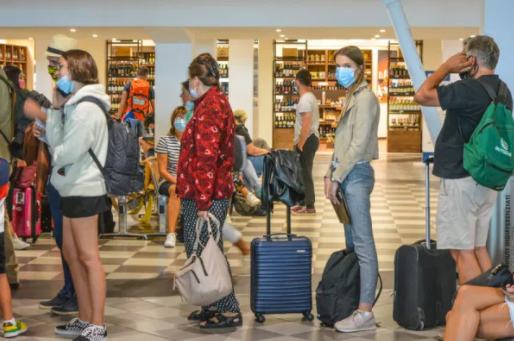On 13 July 2021, Switzerland’s Federal Office of Public Health (FOPH) reported 483 new cases of Covid-19, up from a daily average of 274 over the preceding three days. © Sweet Hour Photography | Dreamstime.com The rise in cases follows a rising trend in the incidence of the more infectious Delta variant, which now makes up the majority of DNA sequenced samples in Switzerland. The latest reproduction rate, or R number, in Switzerland overall is 1.47, which means that on average 1 infected person infects 1.47 other people. In some cantons, such as Nidwalden (3.15), St Gallen (1.94), Zurich (1.94), Glarus (1.92), Jura (1.84) and Ticino (1.84), the virus is spreading significantly faster. The last time the virus was spreading this fast in Switzerland fast was in
Topics:
Investec considers the following as important: 3) Swiss Markets and News, 3a) Health, Coronavirus Switzerland, Covid-19 Switzerland, Editor's Choice, Featured, health, newsletter
This could be interesting, too:
Investec writes The global brands artificially inflating their prices on Swiss versions of their websites
Investec writes Swiss car insurance premiums going up in 2025
Investec writes The Swiss houses that must be demolished
Investec writes Swiss rent cuts possible following fall in reference rate
On 13 July 2021, Switzerland’s Federal Office of Public Health (FOPH) reported 483 new cases of Covid-19, up from a daily average of 274 over the preceding three days.
The rise in cases follows a rising trend in the incidence of the more infectious Delta variant, which now makes up the majority of DNA sequenced samples in Switzerland.
The latest reproduction rate, or R number, in Switzerland overall is 1.47, which means that on average 1 infected person infects 1.47 other people. In some cantons, such as Nidwalden (3.15), St Gallen (1.94), Zurich (1.94), Glarus (1.92), Jura (1.84) and Ticino (1.84), the virus is spreading significantly faster. The last time the virus was spreading this fast in Switzerland fast was in October 2020.
So far the rise in cases has not had much impact on hospitalisations and deaths. Both of these remain relatively low and stable. On 13 July 2021, FOPH reported 5 new hospitalisations and no new deaths. There are several likely reasons for this in addition to the time lag between infection and symptom development.
Vaccination appears to have weakened the link between infections and hospitalisations. In addition, most of the unvaccinated now are in younger age groups, which even without vaccination are far less likely to require hospitalisation.
Key concerns now are that rising numbers of cases might spread the virus to the unvaccinated portion of the population. Across Switzerland, 17% of those over 80, 15% of those aged 70-79 and 24% of those aged 60-69 have not been vaccinated.
Another concern is rising numbers of patients with long Covid, a longer term condition that predominantly affects the young and middle-aged who experience initially mild symptoms that don’t require hospitalisation. The percentage of people unvaccinated in Switzerland rises to more than half of those in their 20s and 30s and more than a third of those aged 40 to 60, according to data published by RTS.
Overall, by 11 July 2021, 42% of Swiss residents had been fully vaccinated and a further 11% were partially vaccinated.
More on this:
FOPH data (in French) – Take a 5 minute French test now
For more stories like this on Switzerland follow us on Facebook and Twitter.
Tags: Coronavirus Switzerland,Covid-19 Switzerland,Editor's Choice,Featured,Health,newsletter









